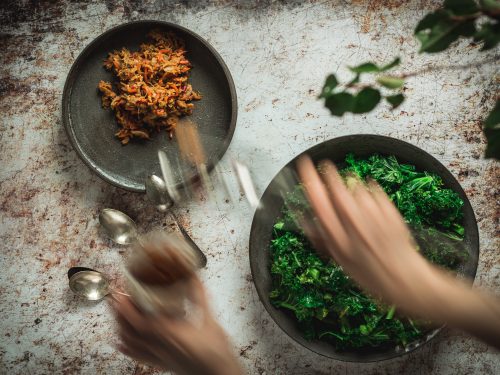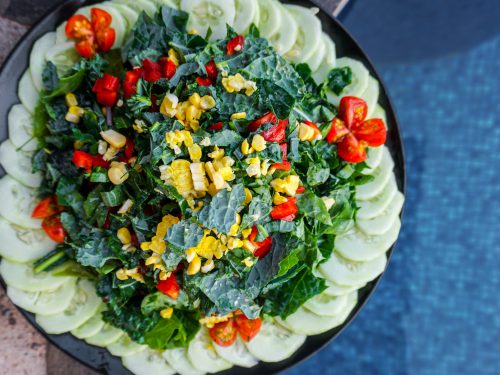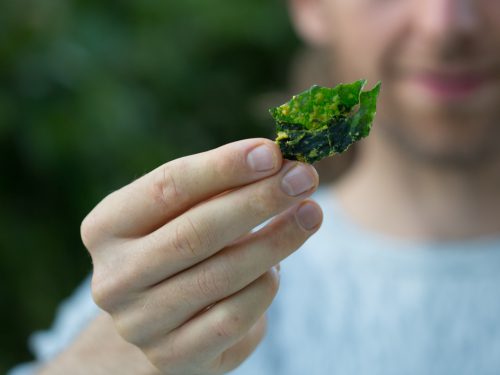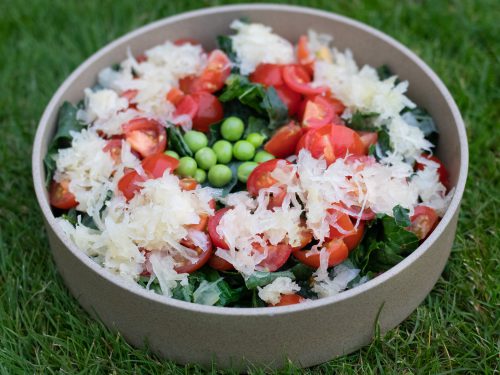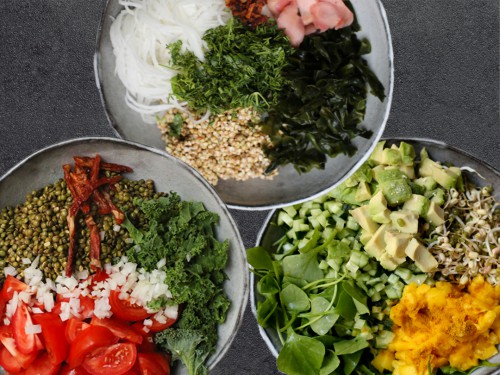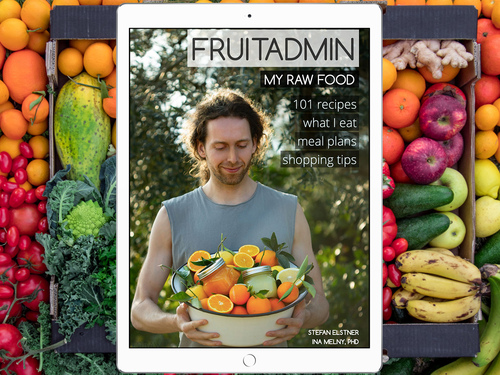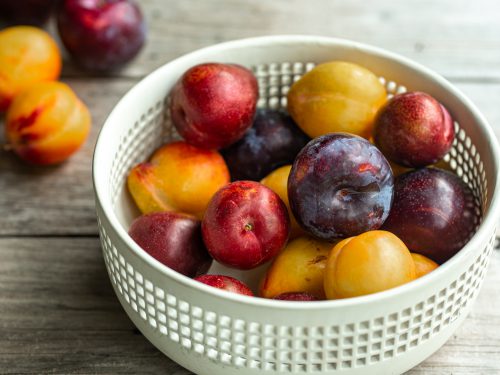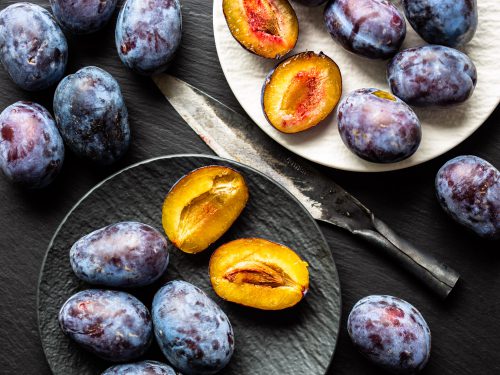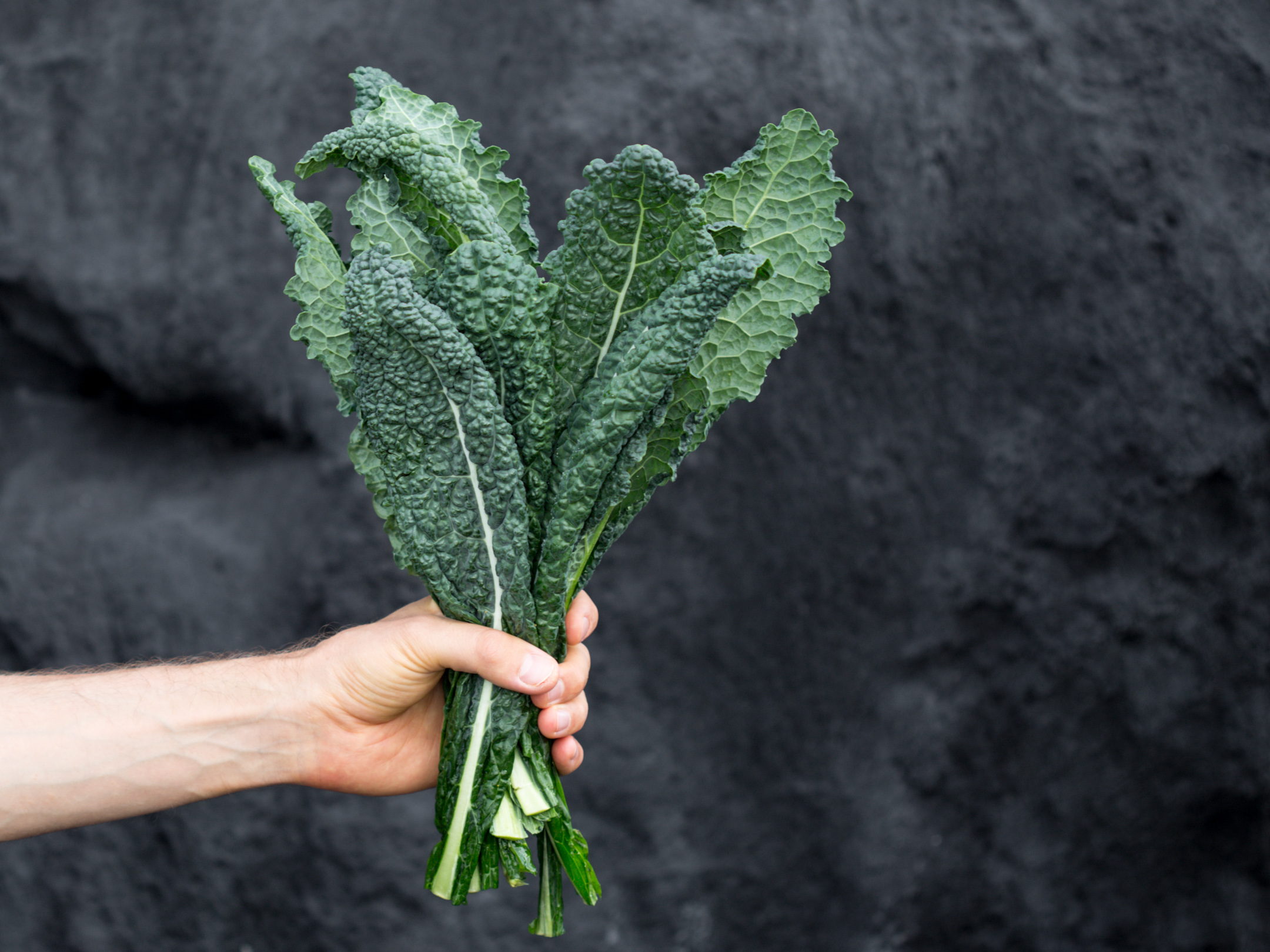
All I know about kale
You can find different kinds of kale at health food stores and farmers market.
Some of the most common kale varieties are dino kale, curly kale, Russian kale, and black (Tuscan) kale.
Kale is a very versatile green. It’s easy to store and widely available almost anywhere around the globe in organic quality. Even during the colder period in the late autumn kale can be purchased at a local farmers market.
If you have a little garden, you can easily grow your own kale. It attracts some of the parasites and also the snails, so make sure to plant more kale that you are planning on eating. You’ll be sharing with the wildlife for sure.
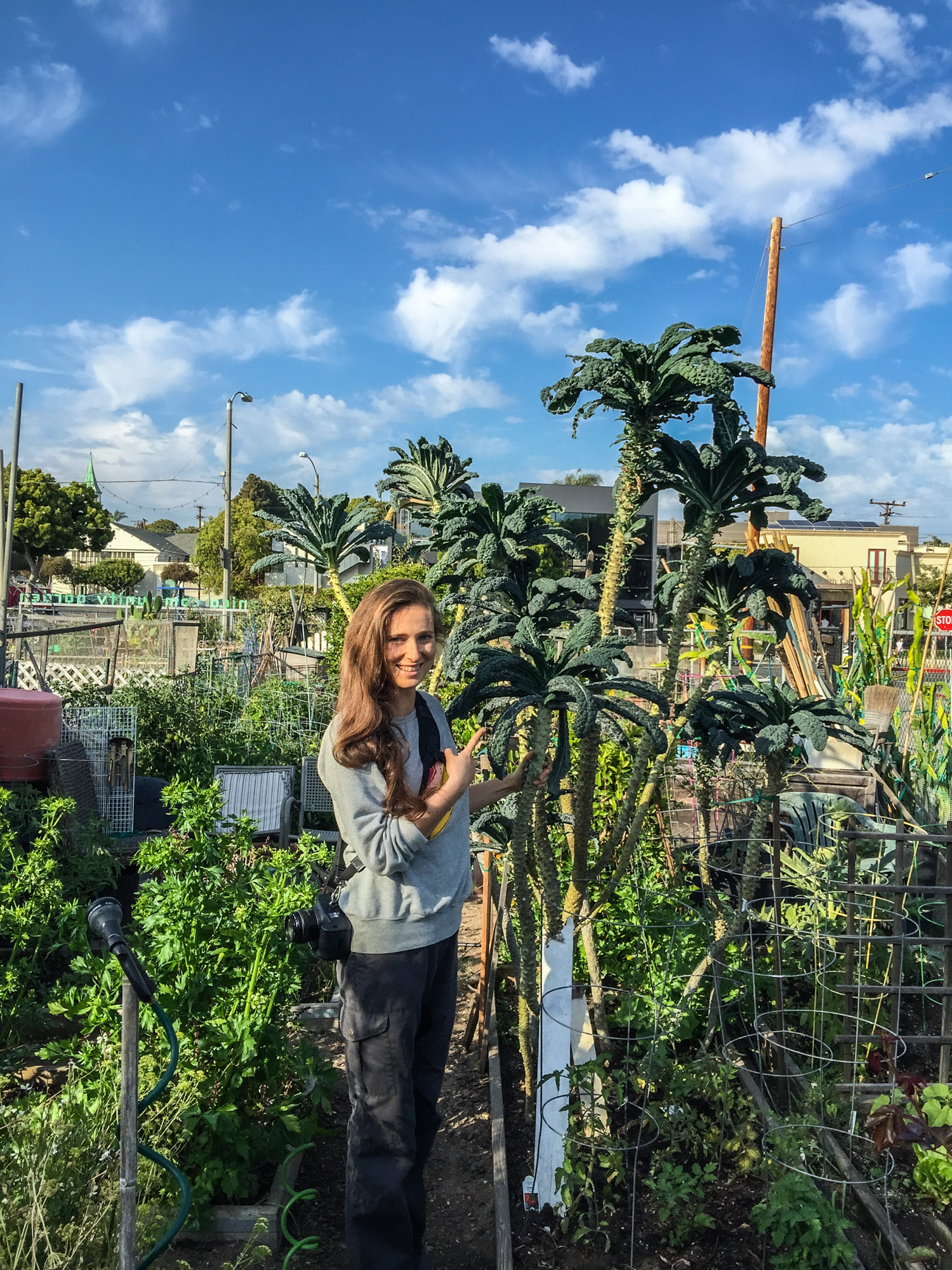
In a warmer climate kale plants can grow into a huge palms. Here is probably where the palm kill name comes from. This was a little garden community in Los Angeles close to where every state. Some people we knew were bringing their fruits scrapes to the garden and giving them to the people taking care of the garden to compost. Actually an amazing way to save the fruits scrapes from going into the landfill.
Kale prep
Here’s a little demonstration on how I prep Kaylee usually. This video was taken years ago in Costa Rica. The farm we stayed on had a huge organic greenhouse. With tons of kale plants and also some veggies, like tomatoes. The avocados in the corn came from and an organic farmers market nearby. Sorry for the German video guys, I will make sure to find the English version on Youtube or to repost it again.
Here, Stefan made a kale salad in New Zealand. You will find more amazing recipes curated by him in his fruitadmin book.
Get the Essential Raw Vegan Recipe Book
with more than 100 recipes for more raw food in your life. The book: a simple guide I wish I had starting out with raw food. Filled with tasty recipes + shopping tips. Take a closer look here.Recipes in the book
Most recipes are made with only a few simple ingredients. All recipes are suitable for beginners:The huge kale palms in Los Angeles, or actually in Santa Monica, without me.
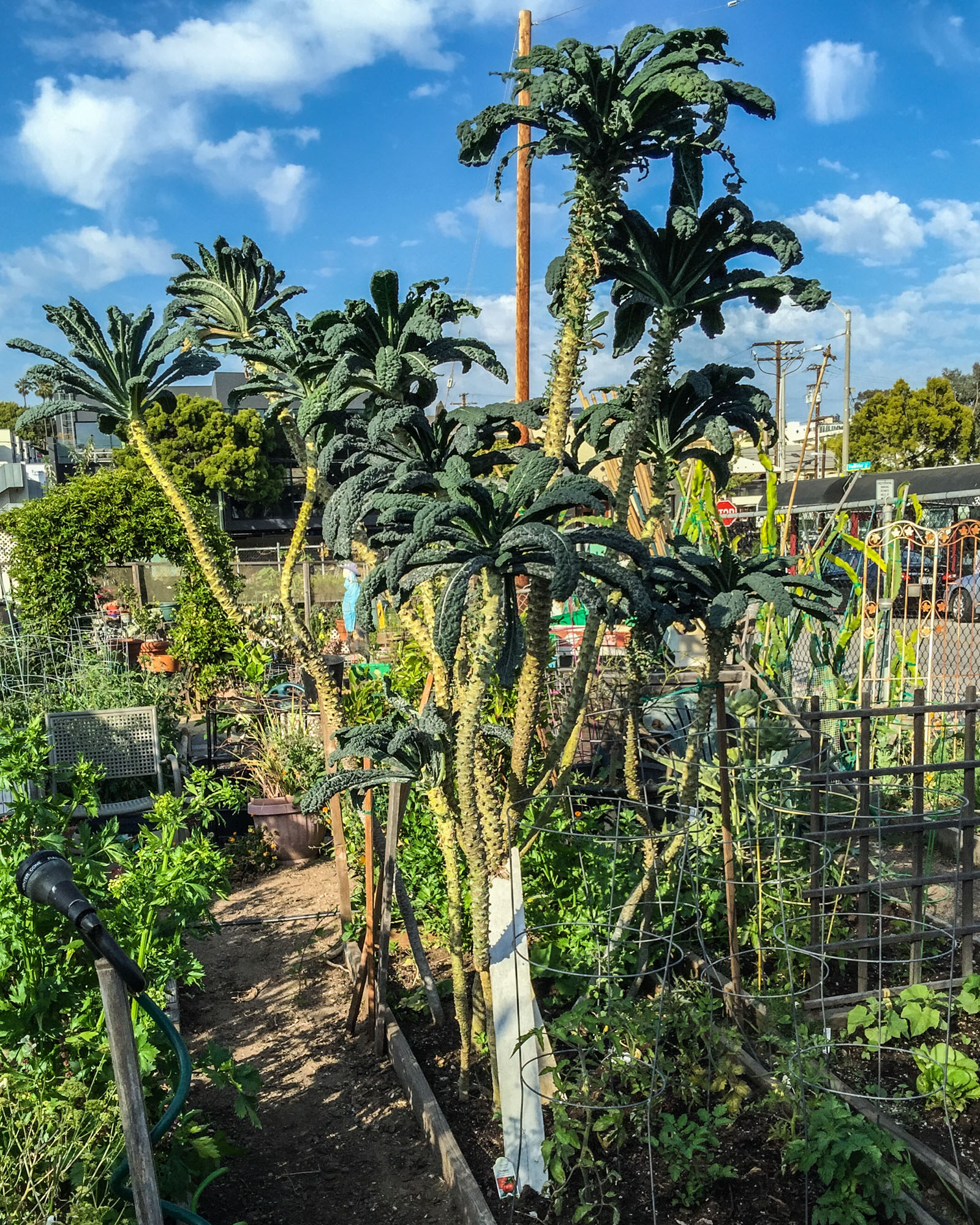
The freshest kale is the best
It’s needless to say that fresh kale is the best the tastiest in the crunchiest. I always make sure to purchase organic kale as kale attracts tons of pests. I had organic kale fully covered in spider Myers so it makes me think that conventional kale is heavily treated to prevent that. I do not mean at all to say one should be avoiding conventional or not organic produce. Not at all. It’s always better to eat greens then not to eat them, even if you can’t get organic. Buying organic is just another layer of protection for me, and I try to support organic farmers as much as they can.
How to store Kale
Kale usually lasts up to 10 days in the fridge. So if I find wilted kale at the supermarket, I know it has been sitting out there for quite some time.
But there are ways to rescue wilting kale. Cut off the stems a little and place the kale into a container with some cool tap water like you would do with fresh flowers. Let it sit in the water filled container for a couple of hours. You can place the kale with the water into the fridge if you have the space for it. I usually cover the container and the kale with a plastic bag, that I reuse over and over again.
Don’t have to space in the fridge, able to place the kale without the water into an airtight container or an plastic bag. Store it in the fridge until needed.
Here is an organic field in Teneriffa. You can see Russian kale growing in the back.
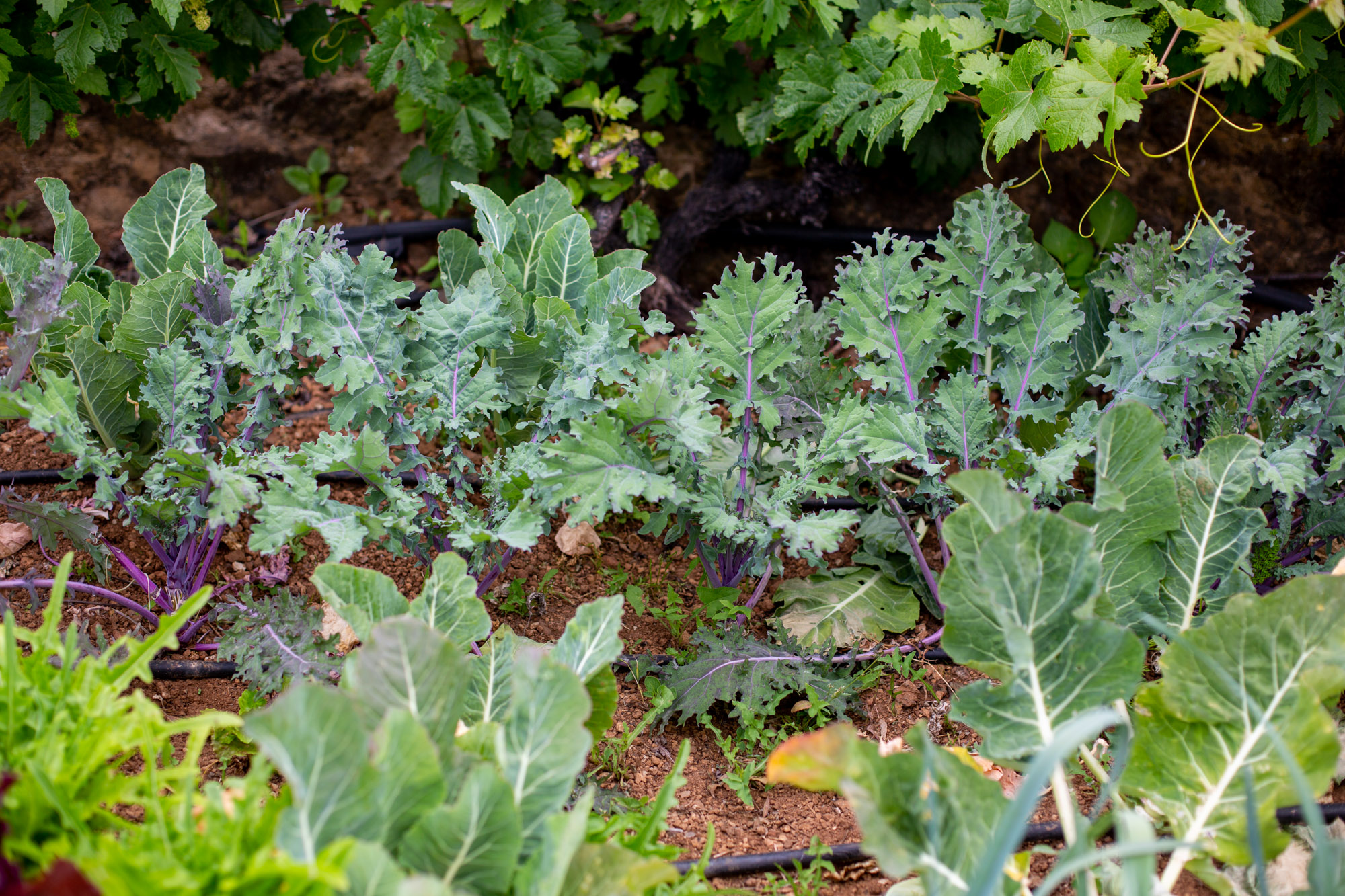
Recipes with kale
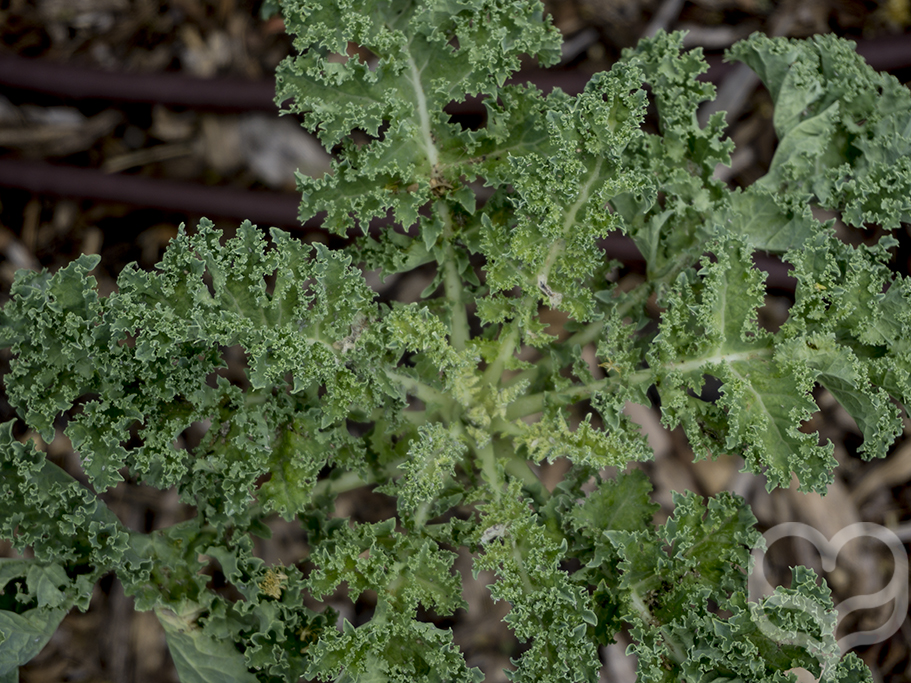
Subscribe to the newsletter!

Here is some kale bought at an organic farmers market in Berlin at Kollwitzplatz. The tomatoes came in plastic containers, but I was able to give those back to be reused again the next time I went to the farmers market. I always try to save those paper containers and to bring them with my next market visit. So I never have to take the plastic containers home.
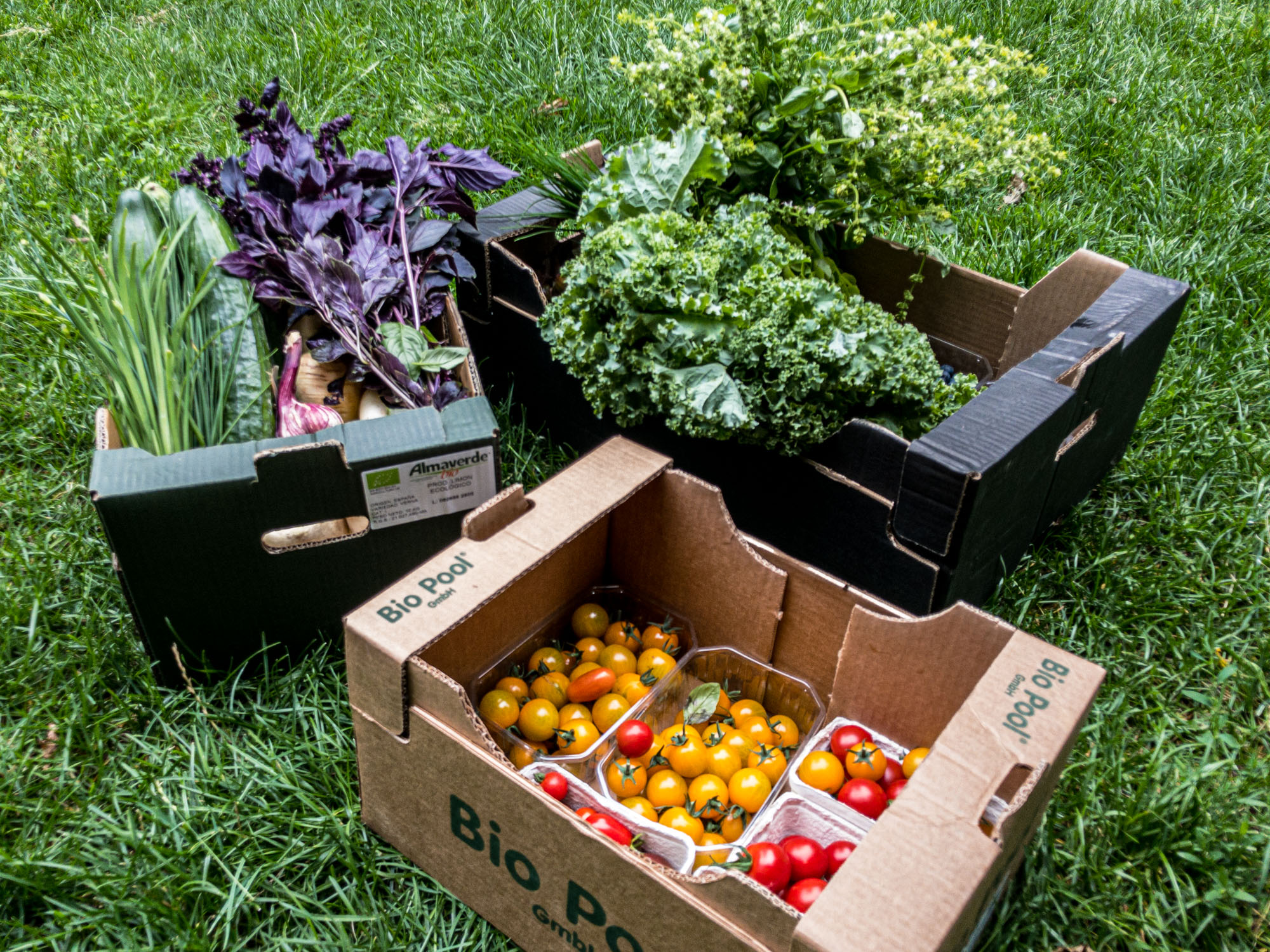
Here you can see an organic kale farm in Hawaii. This palm kale you could grow into huge palms like the ones in Santa Monica.
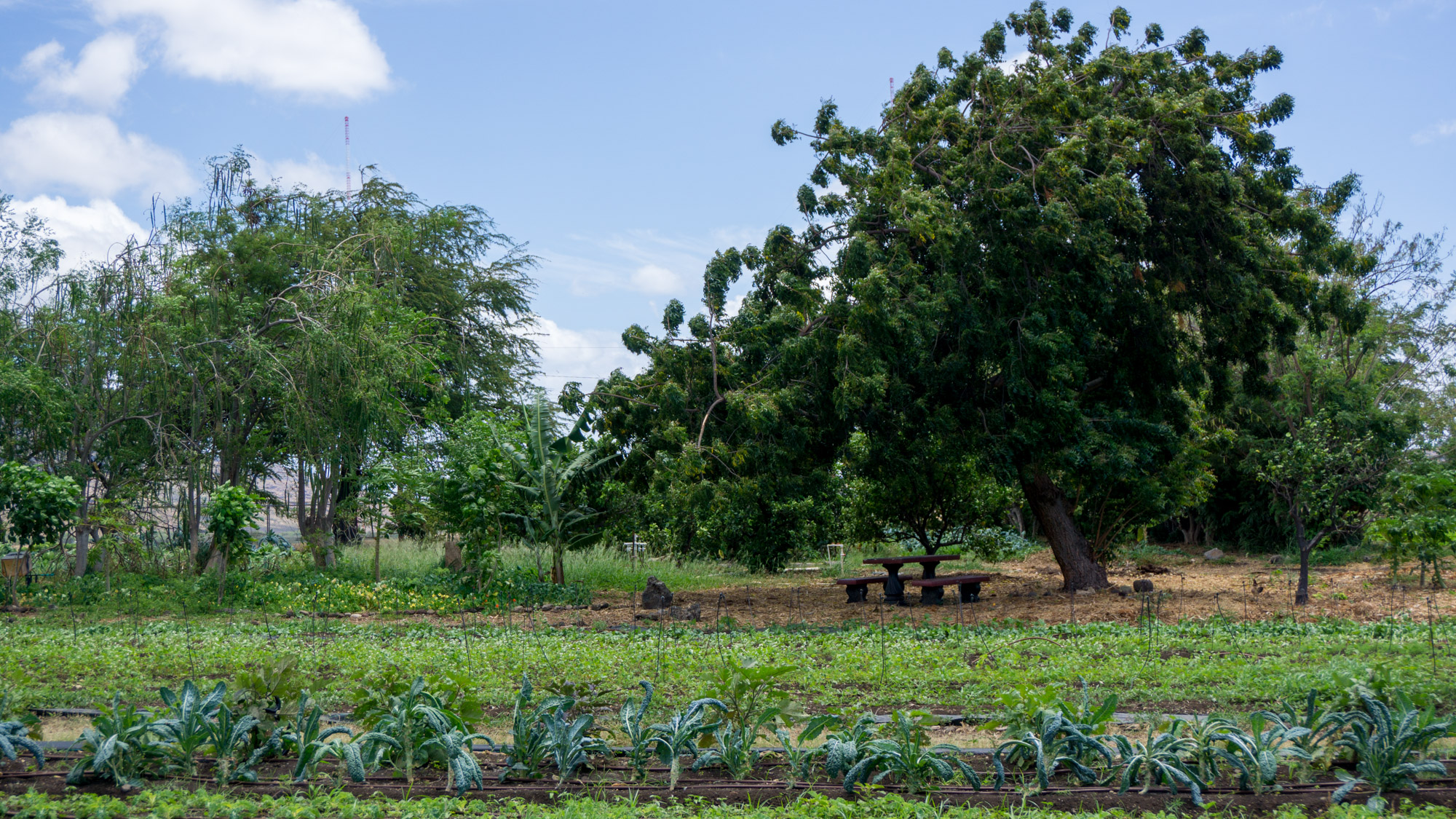
Here we bought different kill varieties in New Zealand.
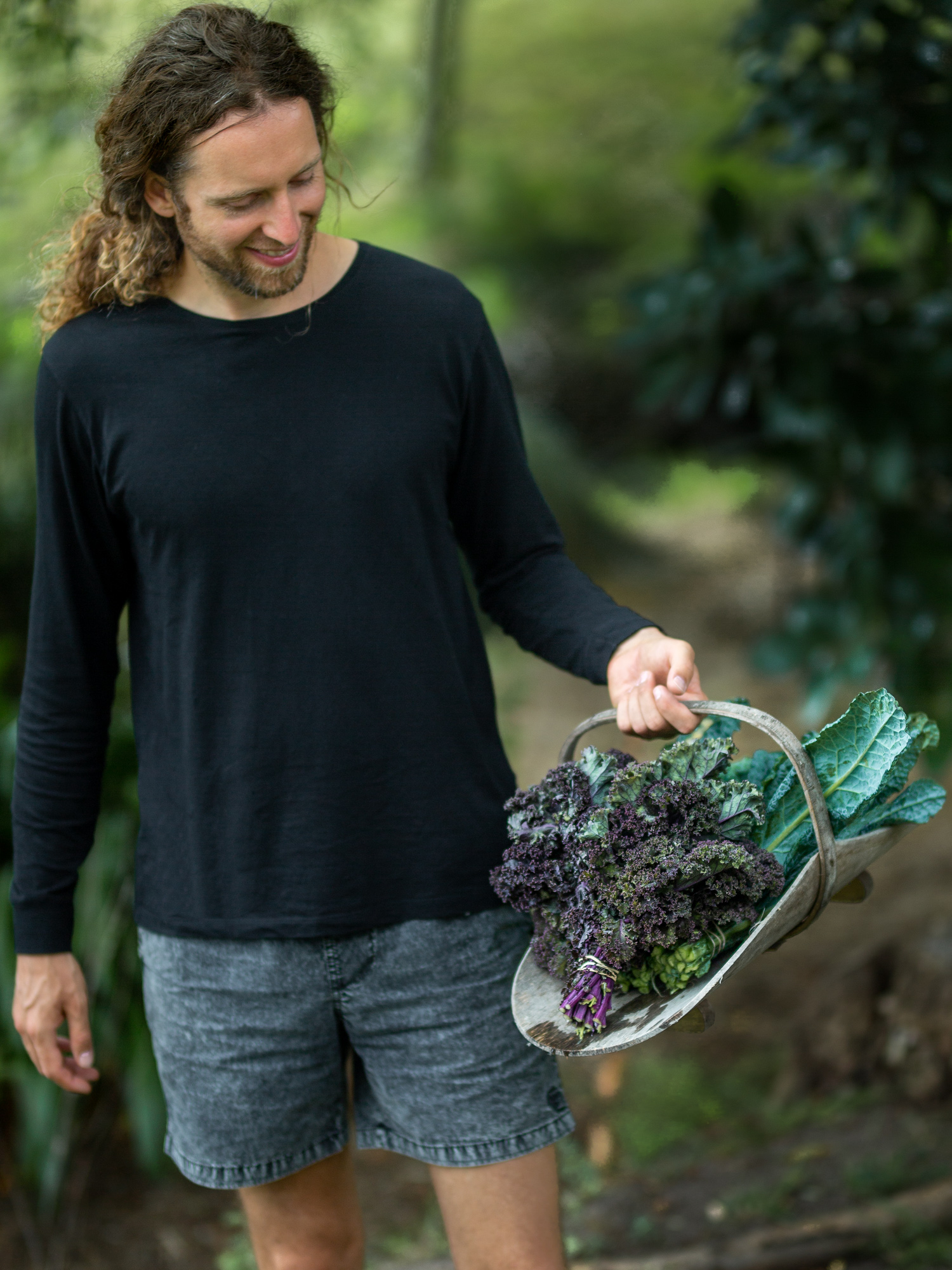
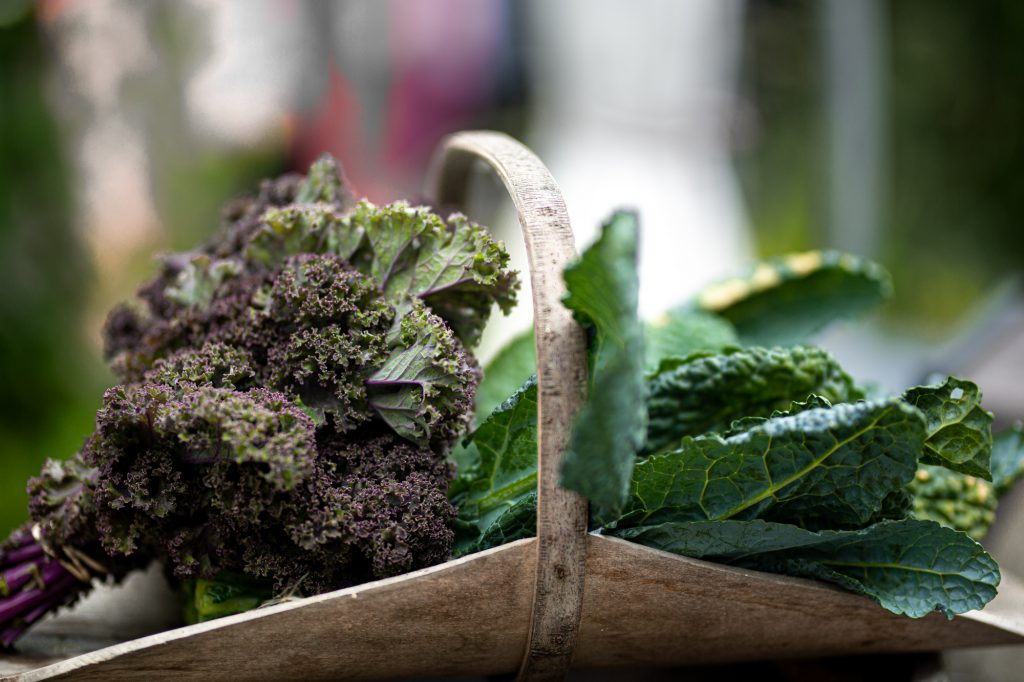
Fruitadmin Book


